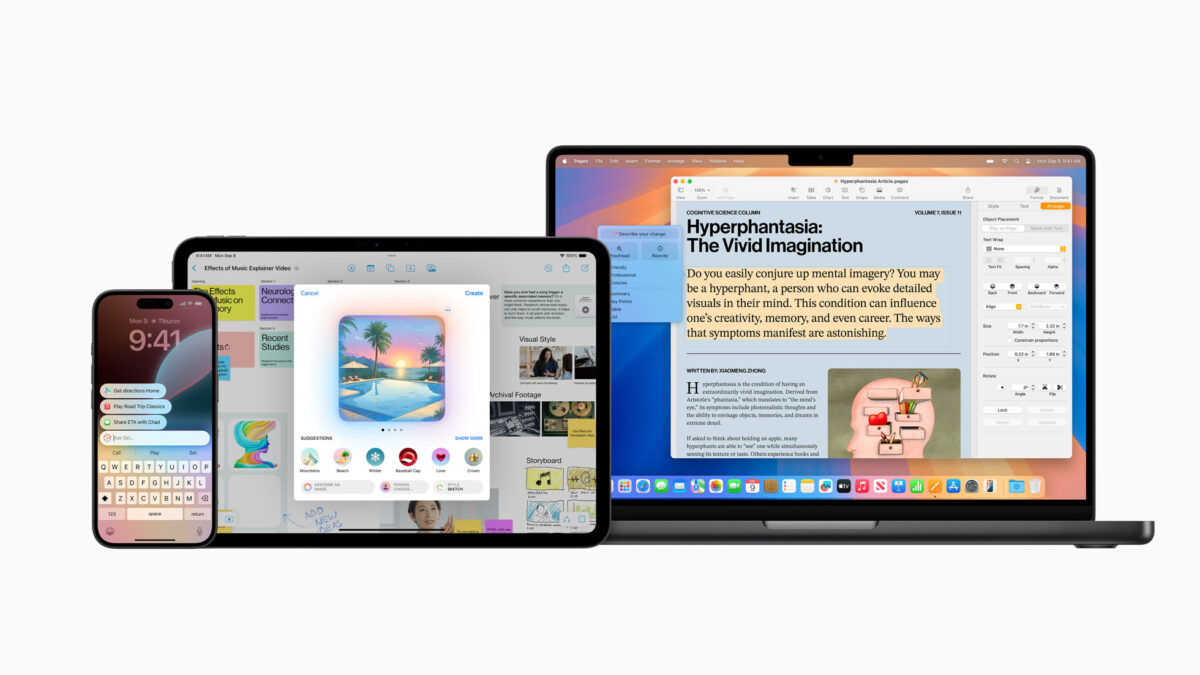Apple’s highly anticipated iPhone 16 series, expected to usher in a new era of AI capabilities, has left many unimpressed. The company’s AI-powered features remain in beta and will take months, or even years, to fully roll out worldwide. Meanwhile, just hours after Apple’s event, Chinese tech giant Huawei launched its new Mate XT smartphone, boasting more advanced AI features powered by its in-house Kylin chips.
Huawei’s latest move highlights its innovation despite US sanctions, while casting uncertainty on Apple’s market share in China, one of its key regions. Here’s why.
Apple’s AI Ambitions: Falling Short?
The delayed launch of Apple’s AI features has raised concerns among analysts about whether the tech is ready for mainstream use. Needham analyst Laura Martin remarked, “With terms like ‘later this year’ and ‘early next year,’ Apple’s core message with the iPhone 16 was essentially: things will get better next year.”
Apple Intelligence, the suite of AI tools in development for some time, was introduced at the company’s developer conference in June. However, the software won’t be included in the initial iPhone 16 models, and many key features are delayed until next year. As of now, its AI capabilities focus on basic functions like summarizing messages and notifications, lagging behind more advanced systems from competitors.
AI Delays in iPhone 16 Disappoint Chinese Consumers
In China, the excitement over the iPhone 16’s release quickly turned to frustration. Local users discovered that AI features wouldn’t be available in their language until the following year. In contrast, Huawei’s Mate XT will launch later this month with fully functional AI tools, including text summarization, translation, and advanced image editing capabilities.
The delay has led to skepticism about the value of Apple’s latest offering in China, where competition from domestic players like Huawei is fierce. Some users on Weibo, China’s popular social media platform, expressed their frustration. One commentator described the absence of AI in China as “cutting off one of Apple’s arms,” while another questioned whether the iPhone 16 should cost less without its flagship feature.
On the other hand, Huawei’s Mate XT, featuring a foldable design, has already amassed more than four million pre-orders, with no deposit required. According to Huawei’s executive director Richard Yu, the Mate XT is the result of five years of innovation and hard work. This strong reception highlights Huawei’s growing influence in the high-end smartphone market.
Apple’s Regulatory and Market Challenges in China
One of the hurdles Apple faces is the regulatory landscape in China. The Ministry of Industry and Information Technology has approved 188 large language models for public use, none of which are from foreign companies. This raises doubts about when—or even if—Apple’s AI features will be available in mainland China, as the launch date depends on approval from Chinese regulators.
Compounding this issue is Apple’s declining market position in China. The company’s ranking in the world’s second-largest economy has slipped from third to sixth place, a sharp contrast to the strong demand Apple typically enjoys during new iPhone launches.
Meanwhile, Huawei has reasserted itself in the high-end smartphone market. Its Mate 60 Pro, featuring a domestically produced chip, took the industry by surprise and defied US sanctions. Strong sales of Huawei’s foldable devices in China have even propelled the company ahead of Samsung as the world’s largest vendor of foldable smartphones earlier this year.
A Window of Opportunity for Huawei
With the delay in Apple’s AI rollout, competitors like Huawei have a clear opportunity to capture more market share. Huawei’s aggressive push into AI-powered smartphones within China gives it an edge as Apple struggles to catch up.
Apple’s AI ambitions in China represent a significant gamble. While the brand still holds sway, the delayed AI features and increasing competition from Huawei present serious challenges. Whether Apple can successfully adapt its AI strategy to meet the unique demands of the Chinese market may determine its future in this critical region.

